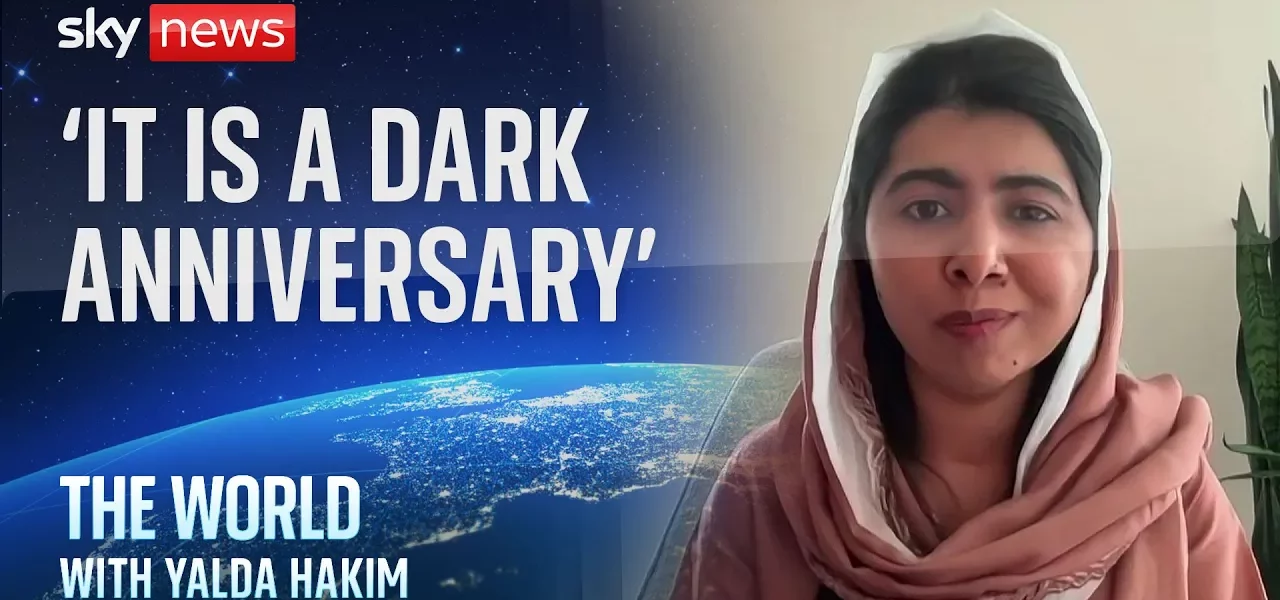Standing with Afghan Women: A Call to Action

In this article, we explore the harrowing reality faced by Afghan women and girls since the Taliban’s takeover, with a focus on education, rights, and the urgent need for global support and activism.
Introduction
The plight of Afghan women and girls has become increasingly dire since the Taliban regained power nearly three years ago. As the world marks a thousand days since the ban on girls attending school after the sixth grade, the systematic oppression they face cannot go unnoticed. Malala Yousafzai, a prominent advocate for girls’ education, emphasizes the critical need for worldwide awareness and action against this gender-based discrimination. This article delves into the implications of these restrictions, the historical context, and the essential role of global solidarity in fighting for Afghan women’s rights.
The Impact of the Taliban’s Policies
The Taliban’s resurgence has led to a series of oppressive measures that systematically erase women’s rights in Afghanistan. This section outlines the major impacts of these policies:
- Education Ban: Girls over the age of 12 are prohibited from attending school, marking a significant regression in educational rights.
- Workplace Exclusion: Women are barred from participating in most professions, severely limiting their economic independence.
- Public Life Restrictions: Afghan women are denied access to public spaces, including parks and salons, under strict edicts.
- Healthcare Access: Restrictions extend to healthcare services, where women face barriers to seeing doctors.
The Historical Context of Women’s Rights in Afghanistan
Understanding the current situation requires a look at the historical context of women’s rights in Afghanistan. Before the Taliban’s first takeover in the 1990s, Afghan women participated actively in various sectors:
- Political Engagement: Women held positions in government and were involved in political discourse.
- Professional Opportunities: Women worked as doctors, journalists, and educators, contributing to society significantly.
- Education Access: Girls attended schools and universities, fostering a generation of educated women.
These advancements were shattered by the Taliban’s oppressive regime, which has now returned with even more stringent measures.
Systematic Oppression: A Call for Global Awareness
The term “gender apartheid” has emerged to describe the systematic oppression of women and girls in Afghanistan. Malala Yousafzai highlights the need for this issue to be recognized as a crime against humanity. The international community must respond to these violations of human rights:
- International Law: It is imperative that gender apartheid is included in international legal frameworks to hold perpetrators accountable.
- Activism: Continuous pressure from activists worldwide is essential to advocate for the rights of Afghan women.
- Support Initiatives: Organizations and individuals must support initiatives that aim to provide educational resources and safe spaces for Afghan girls.
The Role of Activism and Global Solidarity
Activism plays a crucial role in advocating for the rights of Afghan women and girls. Here are some vital points to consider:
Mobilizing Support
Activists and organizations must mobilize support through various channels:
- Raise awareness on social media platforms to keep the issue in public view.
- Organize protests and campaigns that demand action from political leaders.
- Engage in dialogue with international organizations to ensure that Afghan women’s rights are prioritized.
Holding Leaders Accountable
It is essential for citizens to hold their leaders accountable for their promises regarding gender equality. This can be done through:
- Contacting representatives to emphasize the importance of supporting Afghan women.
- Participating in community discussions to educate others about the situation.
Conclusion
As we reflect on the thousand days since the Taliban’s ban on girls’ education, it is clear that the oppression faced by Afghan women and girls is not just a political issue, but a humanitarian crisis that requires our immediate attention and action. We must stand in solidarity with Afghan women, advocating for their rights and ensuring that their voices are heard. It is imperative to call on leaders worldwide to take decisive actions that support education and equality for Afghan girls. Let us not be silent; let us be the loud voices that demand justice and change.
“`




